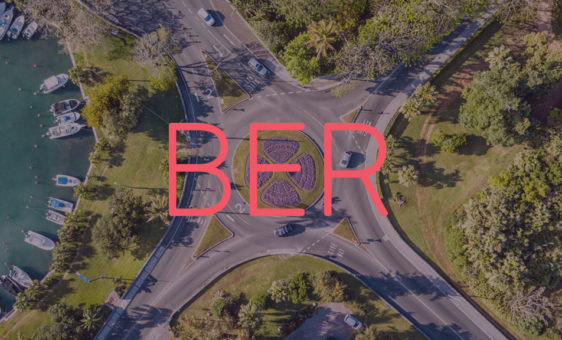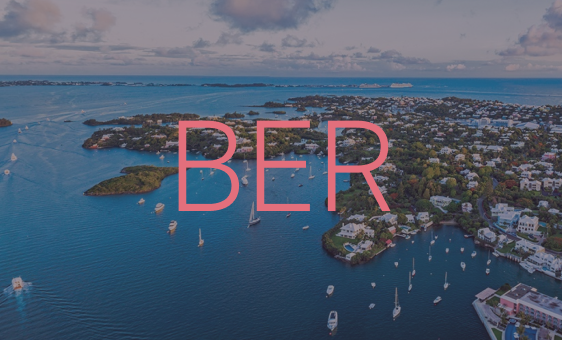The island group is located in the Atlantic Ocean, approximately 760 miles due east of Cape Hatteras, North Carolina. Surrounded by coral reefs and the Gulf Stream, Bermuda remains a popular destination for tourists but its infrastructure, flexible and innovative corporate structures, and strong regulatory environment have made it a leading offshore jurisdiction for company incorporations, including for a number of companies listed on the main New York and Hong Kong stock exchanges. Despite its small size, Bermuda has a reputation as a financial centre, including as the third-largest reinsurance centre, after London and New York, and the BSX is the leading exchange for the listing of insurance-linked securities. Bermuda is also a long-standing jurisdiction for the formation of trusts and home to a dozen or so professional trust companies.
From an enforcement-related perspective, Bermuda offers a system of law based upon English common law and a body of relevant statutes that will be familiar to many English and Commonwealth lawyers. Decisions of the English courts are not binding on a Bermuda court but they are treated as highly persuasive. Generally speaking, the decisions of the Privy Council are, however, binding on the Bermuda courts unless they are based on a reference from a jurisdiction with significantly different statutory provisions. The system for enforcement of foreign judgments and arbitral awards is operated under the supervision of the Commercial Court, which was established as a specialist division of the Bermuda Supreme Court in 2006. There are two dedicated Commercial Court justices at any one time and a Court of Appeal, which sits three times a year, comprises many leading English, Caribbean and Bermuda judges. The current president of the Court of Appeal is Sir Christopher Clarke, a former judge of the English Court of Appeal. Appeals from the Court of Appeal for Bermuda are to the Judicial Committee of the Privy Council in London.
2021 – a Year of Innovation
Bermuda, like any other international business hub, is impacted by global economic factors. A prime example is the current impact of the COVID-19 pandemic on both Bermuda’s economy and Bermuda’s legal environment. The government of Bermuda, like many other governments, is tasked with balancing the negative financial impact of COVID-19 with the desire to keep Bermuda “open for business”. In June 2021, the government lifted the majority of restrictions, apart from testing and quarantine controls at the border. What this has meant for companies, and the attorneys representing those companies, is the careful navigation of newly implemented virtual protocols for delivering documents and appearing in court hearings via video link, and relating to how, and where, witnesses may give evidence across different borders.
The rate of innovation in the period 2020–21 has been very fast indeed, with full trials moving online. In April 2021, the Bermuda Commercial Court saw the commencement of the five-month Wong virtual trial, involving a judge and local counsel in Bermuda, leading counsel and solicitor teams in England, and witnesses spread across a variety of jurisdictions and time zones, including the United States, Taiwan, Singapore and the British Virgin Islands. This has been made effective partly by greater use of technology (such as live transcripts, hyperlinked electronic trial bundles and the use of simultaneous translation for witnesses) but also by the flexibility of the Bermuda Court to adjust its hearing times and to sit more flexibly.
Trends and Developments
The challenges of virtual hearings
Like most other small jurisdictions, managing the effects of COVID-19 and the need for physical distancing measures have presented a significant challenge for the Bermuda courts, especially in a jurisdiction where entirely video-linked hearings (albeit not the giving of witness evidence remotely, which was an established practice) were unknown and the administrative workings of the court are not online, with filings taking place by hand rather than electronically. This has meant that both the Bermuda courts and Bermuda legal practitioners have had to adapt quickly to be able to provide a continuation of service for court users and clients alike.
In the early stages of the pandemic, the Bermuda courts suspended physical hearings and all outstanding court proceedings were adjourned administratively. The focus at the time was to deal with the listing and hearing of the most urgent matters, such as injunction applications, and dealing with less controversial applications such as validation orders in insolvency proceedings “on the papers”. The Supreme Court swiftly moved to a mixture of telephone and virtual hearings, with attorneys and judges working from home. An increasing variety of cases have been dealt with in this way, and members of the Appleby Dispute Resolution team have been involved in virtual hearings for, amongst other things:
an ex parte worldwide freezing order application to freeze BMD104 million of assets;
a ground-breaking three-day specific discovery application in a high-value trust case in the Supreme Court, concerning multiple parties in different time zones, all represented by English leading counsel, appearing via a third-party-maintained Zoom hearing with a live electronic transcript; and
a convening hearing conducted by telephone and a sanction hearing by Zoom leading to the approval of a reconstruction scheme of arrangement for telecommunications company Digicel pursuant to Sections 99 and 101 of the Companies Act 1981.
The Court of Appeal made arrangements to conduct the entirety of its June 2020 session remotely via Zoom, with the justices participating from their homes in England and the Cayman Islands and the hearings streamed live on YouTube. The Appleby Dispute Resolution team took part in a two-day appeal in a significant disclosure case, with English leading counsel also appearing on the video link. That trend has continued into 2021 despite some “in-person” hearings returning after April 2021.
These types of virtual hearings have thrown up considerable challenges. They have the benefit (and downside) of parties being able to share or file documents during the hearing, including amended orders, further submissions and additional authorities. This requires careful case management from the judge and would benefit from a more detailed practice direction. There is also the logistical challenge of using an electronic bundle. Additionally, thought has to be given to the fatigue that comes from lengthy video calls; often involving more frequent breaks than would usually be the case. In summary, the Bermuda Commercial Court has acted to address these matters and ensure that the technology is available and utilised to allow commercial litigation to continue despite COVID-19.
There have been two notable decisions relating to virtual hearings that have arisen from the proceedings in Wong & Ors v Grand View Private Trust Company Ltd et al.
In the first ruling, the issue of open justice and rights of attendance at remote hearings was considered. The Court considered the extent to which the constitutionally protected principles of open justice applied to remote hearings, especially with regard to non-Bermuda -based non-parties who wish to attend a hearing (eg, a foreign news outlet). Assistant Justice Dr Ian Kawaley (Bermuda’s former chief justice) confirmed that Bermuda residents have a right, protected by the Bermuda Constitution, to attend hearings in Bermuda unless the Court determines it necessary to restrict access. The Court determined that non-party Bermuda-based persons who wished to attend the hearing virtually could request access from the Supreme Court registrar, and would be provided the necessary credentials to access the remote hearing. Examples of attendees this would apply to include Bermuda-based news outlets, Bermuda lawyers who practise in the particular area of law who might be interested in sitting in on the proceedings, and members of the public, generally, who wished to attend. On the issue of non-Bermuda-based attendees, the judge held that parties outside Bermuda do not have the same rights of access to remote hearings as Bermuda-based attendees but that the Court has the discretion to grant access to any person upon application.
In the second ruling, the Court considered the impact of hearsay notices served under Bermuda’s Evidence Act 1905 on the basis that witnesses are “beyond the seas” (ie, outside the jurisdiction) and the effect of the trial being conducted virtually, with directions having been made pursuant to the Evidence (Audio Visual Link) Act 2018 for witnesses to give evidence remotely. In refusing permission to extend time for the notices served by the defendants (whilst accepting that the application could not have been made earlier), Assistant Justice Kawaley ruled that Bermuda had not followed the “sea change” movement away from the strictness of the common law that had occurred in England following the enactment of the Civil Evidence Act 1995. When considering whether it would be just to admit the evidence anyway under Part III of Order 38 of the Rules of the Supreme Court, he held that the fact that remote evidence is now possible must have some impact on the jurisdiction to admit hearsay and consideration of whether a witness is to be treated as “beyond the seas”. The precise consequences of this will depend on the facts of each case, the reasons as to why a witness cannot attend or give evidence via video link, and the importance of the evidence and thus the benefit of the evidence being subjected to cross-examination.
This decision represents something of a collision between the legal approach developed in statute at the turn of the 20th century, when it would be difficult, if not impossible, for a witness far away to give evidence, and the modern availability of technological means to overcome geographical and other hurdles.
Overall, the legal system in Bermuda has adapted to continue to deal efficiently with the cases before it, and as a result there has been no significant disruption in the majority of matters, including applications to enforce judgments and arbitral awards.
Legislative Developments
In addition, the Bermuda government has not been idle in drafting new legislation to update Bermuda’s laws, including long-awaited enhancements to Bermuda’s insolvency regime. These changes came into force in November 2020 when amendments to the Companies (Winding-Up) Rules 1982 were enacted, updating a procedure based on the old rules relating to the long-repealed English Companies Act 1948.
The new rules have been considerably updated and now provide a more streamlined process for presenting petitions, accessing court records and obtaining certificates of compliance. The amendments have also formalised into law practices relating to the provisional liquidation regime, such as the requirement for at least one of the liquidators in a joint appointment to be Bermuda-based and to be a person whose credentials are accepted by the Bermuda Court. The new rules also create a process whereby members, creditors and certain others can apply to the registrar of the Supreme Court for permission to obtain copies of documents on the court file upon provision of a simple affidavit request.
Important amendments have also been made to the “firewall” provisions that prevent the enforcement of non-monetary judgments against a Bermuda trust (such as a variation of trust made by the English High Court in a divorce case or where a foreign court has dealt with a forced heirship claim) in the Trusts (Special Provisions) Amendment Act 2020 (TSPAA) came into force on 5 August 2020.
There are no statutory mechanisms in Bermuda for the enforcement of foreign judgments in ancillary relief proceedings that purport to vary offshore trusts or to reorganise beneficial interests under them, and nor has Bermuda adopted any form of “comity” route to enforcement of ancillary relief proceedings. Indeed, Section 11 of the Trusts (Special Provisions) Act 1989 (the “Principal Act”) prevents the enforcement of foreign judgments in matrimonial proceedings varying offshore trusts.
In summary, where a Bermuda trust is properly constituted, the so-called firewall provisions are intended to:
- protect against foreign law application relating to heirship rights, matrimonial/other familial relationship, or matters of insolvency, to the determination of any question concerning a Bermuda trust;
- exclude the application of foreign law to questions relating to the validity, construction, effects or administration of a Bermuda trust; and
- prevent the enforcement of foreign orders in relation to property held in a Bermuda trust (with the exception of immovable property outside Bermuda) that are inconsistent with Bermuda law.
The TSPAA enhances these protections by the following measures.
Adding a new Section 1A
The new section improves certain definitions in the Principal Act, such as “foreign court” (to cover foreign arbitration and other tribunal determinations) and “foreign order” (to include interim or final judgments, awards, orders or other decisions of a foreign court). Of particular importance in the context of firewall provisions is a new definition for ”Bermuda trust”, as it has been specifically tailored to allow for the possibility that Bermuda law may apply to a severable part of a trust only, in accordance with Section 8 of the Principal Act.
Amending Section 10
The amendment repeals and replaces Section 10 in order to enhance the effectiveness of firewall protections under that section. The revised approach as contained in the new Section 10 is intended to provide for an exclusion of foreign law where appropriate, as opposed to providing for a blanket application of Bermuda law, subject to exceptions. This is accomplished by specifying the circumstances under which any foreign law shall be excluded from application to a Bermuda trust.
The new Section 10(3) clearly states that no foreign law shall apply to the determination of any question concerning the validity, construction, effects or administration of a Bermuda trust. This will include any matters concerning the appointment of trustees, rights and duties of trustees, powers of delegation, investment and accumulation of income, duration of the trust, relationship between trustees and beneficiaries and any liability, variation or termination of the trust and distribution of trust assets. The firewall protection afforded under Section 10 will not apply to foreign land or in cases where foreign law has been chosen to apply to any severable aspect of a Bermuda trust in accordance with Section 8 of the Principal Act.
Amending Section 11
The amendment repeals and replaces Section 11 in order to supplement the protective measures under the new Section 10 by preventing the enforcement or recognition of any order of a foreign court where such order is in conflict with the provisions of the new Section 11.
Consequential amendments
The amendments repeal and replace Section 36G of the Conveyancing Act 1983 (Bermuda’s fraudulent transfer legislation) so as to simplify the language and to allow for consistency with the updates to the firewall provisions of the Principal Act. This will clarify that Bermuda’s fraudulent transfer legislation will not enable a creditor’s claim if the claim is precluded by Bermuda’s firewall provisions.
Standstill Agreements
A burgeoning trend is the use of standstill agreements between a creditor seeking to enforce a debt, including judgment debts, and the company. This tool is particularly useful as Bermuda – unlike some jurisdictions, such as the UK – has chosen not to introduce a temporary statutory moratorium on the service of statutory demands and the presentation of winding-up applications during the pandemic. The process works as follows: where an event of default under a loan agreement has already occurred, or where it is likely to occur in the future due to cash constraints on the company, the company and its creditors can enter into a standstill agreement to suspend either the creditor’s rights of enforcement (if the default has already occurred) or the obligations of payment (if default will otherwise occur in the near future). This will be an entirely consensual private contractual arrangement between the creditors and the debtor company. Thus the creditor will retain and protect their enforcement rights but avoid the need to immediately pursue the collective route of insolvency proceedings.
There is no particular specified form that a standstill agreement must take in Bermuda, but it will need to follow usual common law contractual principles; there will need to be mutual benefit to the parties to the agreement and the agreement must have the certainty of a specified period (the standstill period). The agreement should also fix the amount of debts owed to the creditors of the company as at a particular date (the standstill date).
From the authors’ experience, standstill agreements will frequently be relatively short in duration (often two to three months), usually at the creditors’ insistence in order to allow them to maintain leverage. It is common for agreements to be extended by mutual consent where genuine progress is being made, although the negotiation of extensions is likely to involve demands from creditors for additional enhanced levels of information provision or other covenants.
Winding-Up
Many companies have had to consider whether their financial standing and existing business models are strong enough to withstand the negative economic effects resulting from COVID-19. Bermuda has always been viewed as a business-friendly jurisdiction that promotes restructuring through light-touch provisional liquidation, which is the hallmark of Bermuda’s insolvency regime and provides a number of those companies with a much-needed lifeline to restructure their debts in a practical, structured and sustainable manner.
During both 2020 and 2021 there have been a number of significant reported insolvency decisions in Bermuda, such as Re FDG Electric Vehicles Ltd and Re Agritrade Resources Ltd,where the court emphasised that the best interests of unsecured creditors will be the primary consideration applicable not only to the question of provisional liquidator appointments but also to other applications, such as whether or not to make a winding-up order or to adjourn a petition. Notably, in the recent case of Re Centaur Ventures Ltd (unreported), this led the court to appoint provisional liquidators put forward by an unsecured creditor appearing on the petition, as opposed to the liquidators proposed by the petitioner. In that case, the petitioner was a connected company from the same group as the insolvent company, and the court held that in case where there were questions to be investigated as to the transfer of the only significant asset of the company to an associated company, it was vital that the provisional liquidators appointed by the court were perceived by the unsecured creditors to be truly independent.
Arbitration
Bermuda continues to be an arbitration and mediation-friendly jurisdiction. The jurisdiction has a modern international arbitration statute that is based on a “model law” adopted by a large number of other jurisdictions. There is also an active Bermuda branch of the Chartered Institute of Arbitrators (CIArb), and a strong local body of experienced arbitration lawyers, as well as an available pool of senior qualified arbitrators, many of whom are CIArb fellows, with extensive experience in areas as diverse as contract law, trusts, construction and insurance disputes.
In order to promote the jurisdiction as an arbitral centre, on 24 July 2020 the Bermuda government announced plans to create an international arbitration centre in Hamilton, the capital of Bermuda. This is on the basis that the jurisdiction is well placed geographically – in light of its unique location, and proximity and easy connections to London and New York – to attract arbitration work, and has a modern legislative arbitration framework. It is hoped that this development will allow a regional arbitration centre to develop to complement Bermuda’s existing reputation for using international arbitration to resolve insurance and reinsurance contract disputes.
Locations
Services
Corporate, Dispute Resolution, Arbitration & Alternative Dispute Resolution, Fraud & Asset Tracing, Insolvency & Restructuring, Fund Disputes, Insurance Disputes, Merger Disputes, Regulatory Disputes, Trust Disputes, Regulatory Advice, Technology & Innovation
Sectors
Banking & Financial Services, Technology & Innovation, Insurance & Reinsurance















